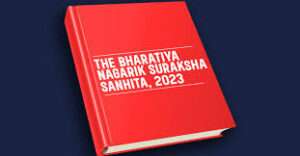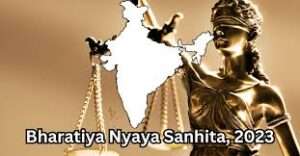
This article has been written by Sanju Jha (pursuing Ba. Llb from Rnb Global University, Bikaner)

Introduction
The principle of estoppel implies that a man shall not say one thing at one time and later say a different thing. Estoppel is based on the principle of equity. The provisions of sections 115 to 117 of the evidence act deals with the principles governing estoppel.
Section 115 of the Indian Evidence Act, 1872 provides the meaning of estoppel as when one person either by his act or omission or by declaration, has made another person believe something to be true and persuaded that person to act upon it, then in no case can he or his representative deny the truth of that thing later in the suit or in the proceedings.
The principle of estoppel was effectively laid down in Pickard v. Seers the court held that estoppel is where:
- One party by his words or actions makes a representation.
- The other party believing in his words acts on that
- Or alters his position then the party would not be allowed to deny the things he previously said.
In the third clause, the altering of the position should be such that going back would be unjust or unfair in the eyes of law[1]
Essential ingredients for application of doctrine of estoppel:
- A representation is made by one person to the other party.
- Other party believes it and acts upon such belief thereby altering his position.
- Then in a suit between the parties, the person who presented shall not be allowed to deny the truth of his presentation.
TYPES OF ESTOPPEL:
1. Estoppel by Record: it arises in cases where a judgement has been given by a competent court and the effect of it is that the matters decided cannot be reopened by a person who is a party to the judgement or his representative. We do not use this rule in India but rely upon the principle of res judicata to get the same effect.
2. Estoppel by Deed: This implies that neither he nor his representatives or any person claiming under him can deny the facts mentioned and agreed in the deed.
3. in pais de hors: it arises from an agreement, contract, act or conduct of misrepresentation, negligence and omission which has induced in the change in position in accordance with acts or conduct of the other party. Estoppel in pais is dealt with under sec 115 to 117.
Estoppel in Indian Evidence Act
Section 115 of the Indian Evidence Act, 1872 defines estoppel. According to it-
“When one person has, by his declaration, act or omission, intentionally caused or permitted another person to believe a thing to be true by his act upon such belief, neither he nor his representative shall be allowed, in any suit or proceeding between himself and such person or his representative, to deny the truth of that thing.”
It means that a person cannot deny a thing after having stated it to be true. In the case of B. Manjunath v. C.G.Srinivas[2] it has been stated by the Karnataka High Court that by way of the principle of estoppel, the plaintiff may be stopped to go back on his representation. This is the doctrine of Estoppel.
In respect of estoppels the case of ‘Shammim Beg v. N. Begum[3] is quotable. In this case, a document was executed between the husband and wife an intention that the wife has begotten before the marriage with the husband. The husband had accepted the fact of knowing the child. The wife gave birth to a child on the day of marriage. The husband could not challenge the legitimacy of this child. He is bounded by his previous statements.
Section 116 of the Indian Evidence Act, 1872
The section states that during the continuance of the tenancy, the tenant of the immovable property or any person claiming through such tenancy can deny the fact that at the beginning of the tenancy, it was the landlord who had the title over the immovable property.
Further, the Section also explains that a person who came upon an immovable property by license cannot deny the fact that the person from whom he got the license, that is, in whose possession the immovable property, had the title at the time when he got his license.
Scope of Section 116
- It is concerned with those estoppels which occur between:
- Tenant and his landlord
- Licensor and licensee
- Title of the landlord cannot be denied
Once a tenant enters into a relationship of landlord and tenant, receives the possession of the property and finally enters into the premise, during the period of such possession may deny to things or course of action by the landlord which is against what was mentioned in the agreement. A tenant in no case claims that the landlord has no title over the property.
Section 117 of the Indian Evidence Act, 1872
The section states that the acceptor of the bills of exchange cannot deny the person who is supposed to draw the bills, from drawing it or endorsing it. Also, no bailee or licensee can deny the fact that at the time when the bailment and license began, the bailor and the licensor had the authority to make bailment or to give license.
The person accepting the bills of exchange can deny that the bills of exchange were really drawn by the very person who showed to have drawn them. If the bailor mistakenly delivers the goods to some third party instead of the bailee, he can prove that a third party has the right over the goods bailed against the bailor.
Scope of Section 117
This section demarcates that the person who accepts the bills of exchange although cannot deny that the person drawing the bills has the authority to draw or to endorse it but can deny that the bills were actually drawn by the person by whom it appeared to have been drawn.
The bailee or the licensor cannot deny the fact that at the beginning of bailment or grant, the bailor or the licensor had the authority to perform it. But a bailee can prove that the third party to whom the goods were delivered instead of the bailor had the right against the bailee.
CASE LAW:-
Moti Lal v. Yar Md[4], in this case, the judge said that the tenant cannot say that the landlord has no more interest in the property when the landlord filed a suit for default payment and ejectment. It is only after leaving the possession can the holding of title by the landlord be questioned.
Udai Pratap v. Krishna Pradhan[5], in this case, the continuance of tenancy was defined as a period during which the tenant enjoys the possession of the property and is seeking benefits from it.
Kumar Nilofar Insaf (Dr.) v. State of Madhya Pradesh[6], in this case, while taking admission to the medical college, the college released a merit list for house-job. When the same merit list was released for admission to the M.D. course, the plaintiff filed a suit. The court estopped the plaintiff since he had consented to the first merit list.
In Sri Krishna v Kurushetra Univ[7], held that once a candidate has been admitted to an examination his candidature cannot afterwards be cancelled even if his form carried certain infirmities. The candidate is not guilty of fraud if he misstated facts the truth of which the university could have discovered with ordinary care.
Conclusion
The Doctrine of estoppel is an important principle which protects people against fraud or misrepresentation. There are several instances where an innocent person becomes prey to false representations made to them by some party.
The legal principle of estoppel gives an incentive to every one of those people who tries to make false representations to others and induces them to act upon it by planting their faith in them and incur losses as a result of such false representations, by not performing such acts, else they would be held liable.
[1] Pratima Chowdhury v. Kalpana Mukherjee.
[2] AIR 2005 Karnataka 136
[3] Shammim Beg v. Najmunnissa Begum
[4] Moti Lal v. Yar Md A.I.R. 1925 All 275
[5] A.IR. 1932 AII 437
[6] A.IR. 1991 SC 187
[7] AIR 1976 SC 376






